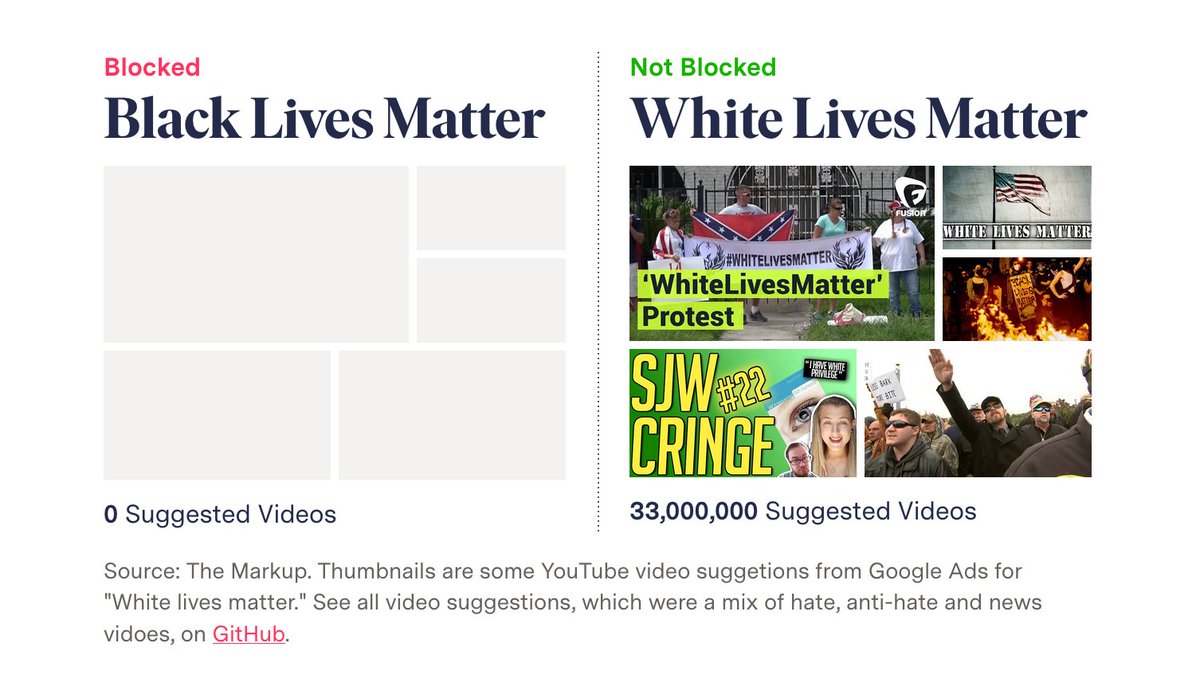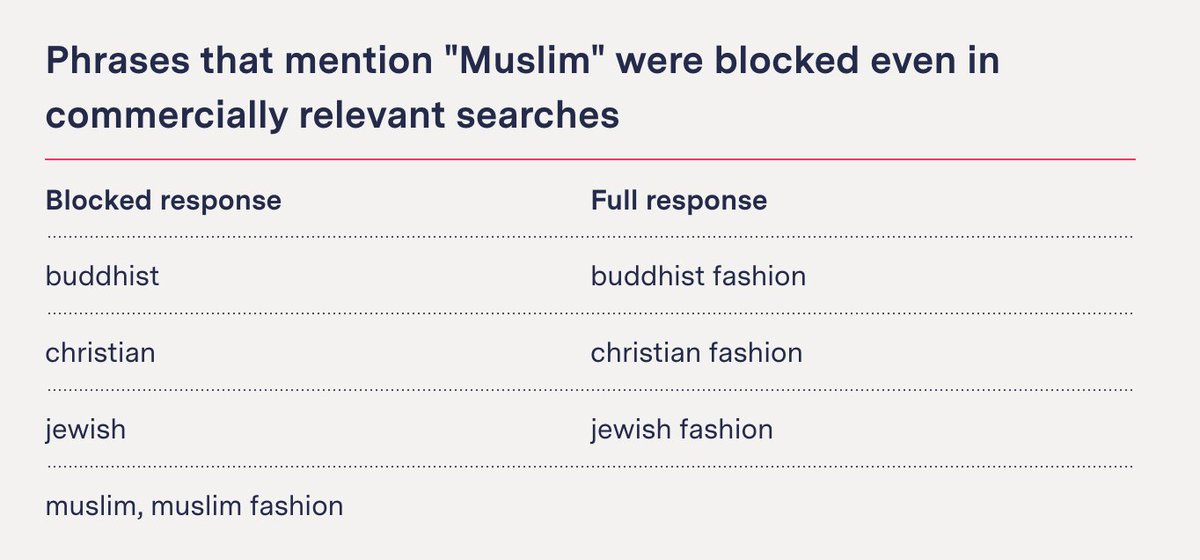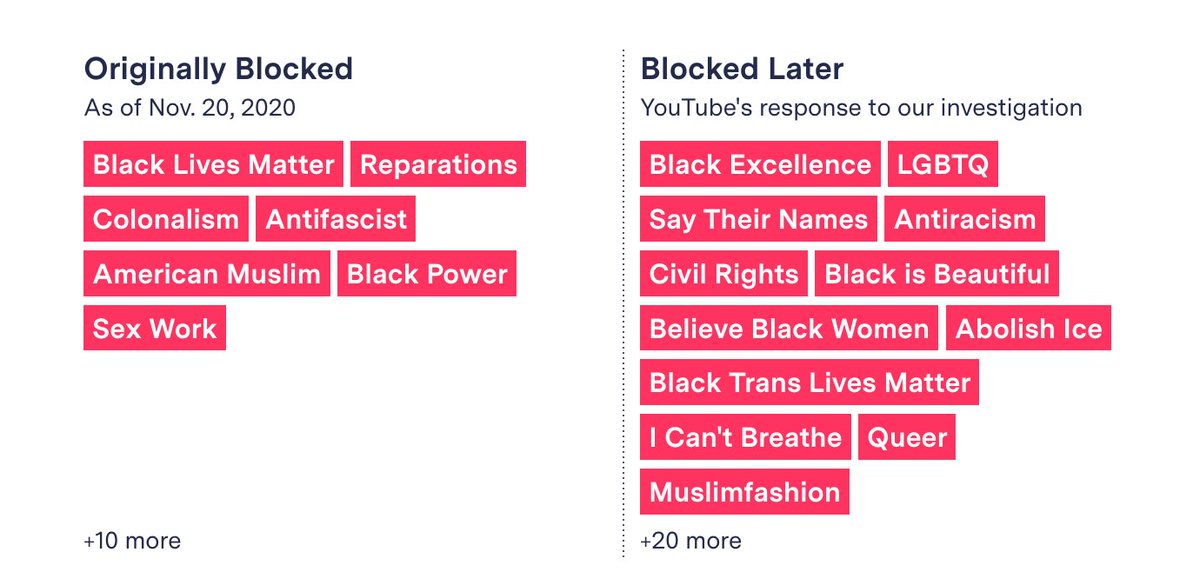
🧵: Yesterday we revealed how YouTube enabled advertisers to build ad campaigns around hate terms.
Today we reveal how YouTube blocked advertisers from building ad campaigns around social justice terms such as “Black Lives Matter.”
themarkup.org/google-the-gia…
Today we reveal how YouTube blocked advertisers from building ad campaigns around social justice terms such as “Black Lives Matter.”
themarkup.org/google-the-gia…

2/ @leonyin and @asankin found that YouTube’s ad portal blocked search results for one-third of the 62 racial & social justice phrases tested.
For example: All the phrases we tested containing the word “Muslim” were blocked, even innocuous ones like Muslim fashion.
For example: All the phrases we tested containing the word “Muslim” were blocked, even innocuous ones like Muslim fashion.

3/ Google would not comment on its blocked racial and social justice terms. But after we reached out, Google EXPANDED the block list to include ADDITIONAL terms including:
icantbreathe
black excellence
civil rights
racial justice
say her name
icantbreathe
black excellence
civil rights
racial justice
say her name

4/ Google now blocks 84% of the phrases on our list of social and racial justice terms – up from one-third of those on our list when we first tested in November.
Google also changed its code to preclude future investigations.
Google also changed its code to preclude future investigations.
5/ As always, we show our work by providing detailed methodologies and access to our data.
github.com/the-markup/inv…
themarkup.org/google-the-gia…
github.com/the-markup/inv…
themarkup.org/google-the-gia…
• • •
Missing some Tweet in this thread? You can try to
force a refresh






